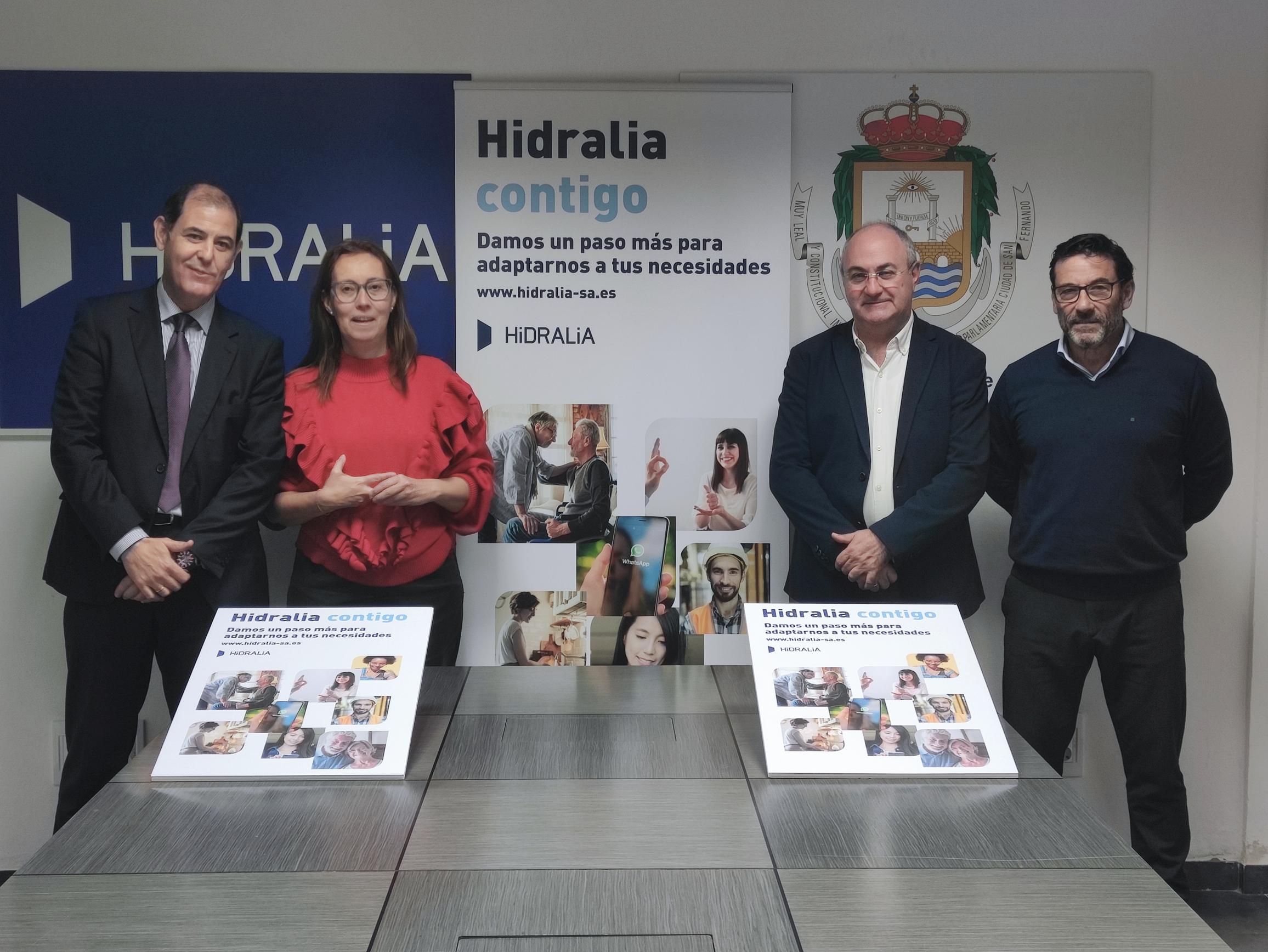Hidralia promotes its program 'Contigo' in San Fernando that stands out for its multichannel and personalized attention
Pay special attention to people in vulnerable situations, identifying the digital, understanding, accessibility or economic barriers they may have
Hidralia, concessionaire of the drinking water and sewerage service in San Fernando, is committed to innovation and the vocation of service to continue placing people at the center of its customer service model. In recent times the way of living and relating has changed and, from the company, an effort has been made to anticipate the needs of citizens, while facilitating their comfort when making arrangements.

Some premises that have served to establish the Contigo program, an initiative that seeks to promote non-face-to-face channels, to facilitate management, as well as ensure good care for people in vulnerable situations.
Hidralia is promoting this model of customer service in San Fernando and therefore the manager of the company, José Luis Trapero, and the head of the customer area in the area, José Alejandro Fernández, have presented to the municipal managers of the area of Social Services, Virginia Barrera, and Sustainable Development, Ignacio Bermejo, all the possibilities and alternatives that compose it.
This is the case of its multichannel service, so that each client can choose the channel through which they want to be served according to their needs, enjoying greater time flexibility to carry out procedures and avoiding unnecessary waiting and travel.
Speed, convenience and accessibility are advantages of these channels, such as the website (www.hidralia-sa.es), where customers can consult or carry out any management, which also has a virtual assistance chatbot in which customers are provided with answers to their most common queries. In addition to the telephone service, WhatsApp or video call service, are other measures that the company is making available, without giving up attention with the same closeness as always.
On the other hand, the Contigo program aims to identify the main barriers that customers could face and be able to offer a response to them. For its implementation, different meetings will be held with local social entities (such as the Red Cross or neighborhood entities) to know their vision, work together and offer them preferential attention channels for the anticipation and resolution of procedures of people in vulnerable situations, identifying the digital, understanding, accessibility or economic barriers they may have.
In fact, new actions are already being launched:
For comprehension barriers, new languages have been deployed to serve people, ensuring the inclusion of immigrants who do not master the language.
For the barriers linked to digitalization, in addition to facilitating procedures by appointment in offices, telephone or videoconference, processes have been implemented that allow procedures to be carried out on behalf of other people, as well as enabling the sending and receiving of paper documentation.
For barriers linked to hearing disabilities, the use of the WhatsApp channel allows deaf people to have simple attention. In addition, the sign language service has been made available in offices or by video call.
Additionally, for situations of economic vulnerability, the objective is to guarantee that all those people who may require any of the available aid (options such as "12 drops" - installment payment with the same amount each month -, deferral and fractionation of debt without interest, rates and social funds) they know them and can request them in a simple and agile way. To this end, we are working with different local social entities so that they can facilitate the procedures as well as the identification of those users who may require these aids.
It should be remembered that in the case of San Fernando and through the Social Pact for Solidarity, Employment and Green and Inclusive Reconstruction of San Fernando, measures such as the Minimum Living Guarantee or extending bonuses for pensioners, people with disabilities and victims of gender violence will be implemented.
